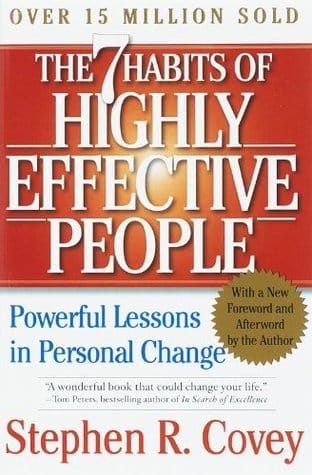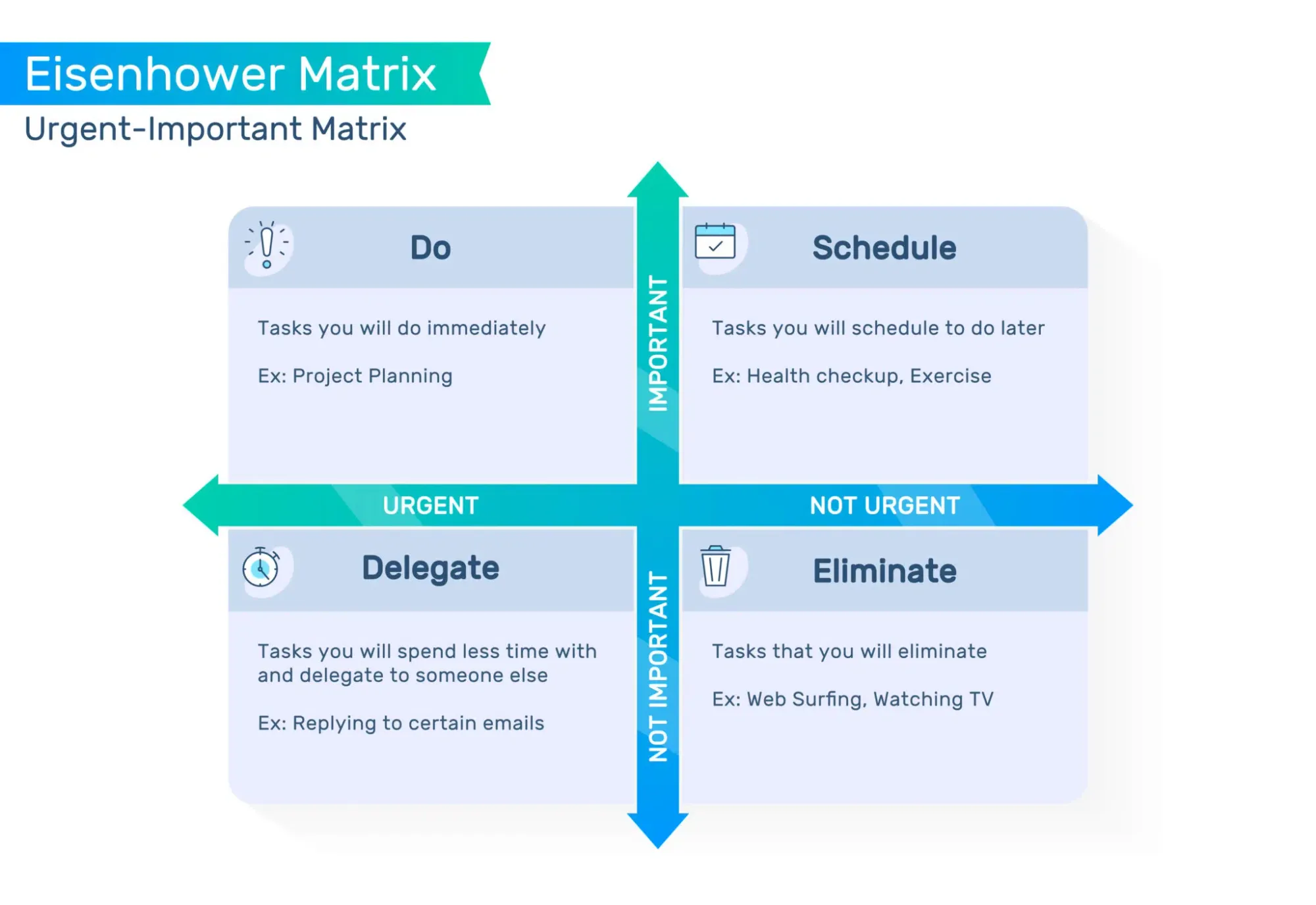The 7 Habits of Highly Effective People by Stephen Covey

Hello folks. Welcome to another edition of Damola's Book reviews. This month, I finished reading "The 7 Habits of Highly Effective People," and I loved it. It reminded me of Atomic Habits in the way it presented a framework for developing the 7 Habits.
The book divides the 7 Habits into 3 sections:
- Private Victory (Independence)
- Public Victory (Interdependence)
- Sharpening the Saw (Renewal)
The first 3 habits fall under private victory and deal with the tools you need to be independent. I shall go through them one by one to explain my understanding of them.
(1.) Be Proactive
The first habit the book talks about is this one. Be Proactive. Take the initiative to do the things you need to do in your life even before the situation demands them. This requires having a personal vision that gives your life direction and allows you to know what your next steps should be even without circumstances dictating them.
But beyond having a personal vision to direct you, you need to have control over your reactions. Otherwise, your life would be a reactive one dictated by the things that happen to you instead of being driven by the things you make happen. This way of living requires you to take advantage of the gap between stimulus and response to choose the appropriate response.
If you are not aware that there is a gap between stimulus and response then you are probably living a reactive life where you automatically respond to things that happen to you without taking the time to consider alternative responses and be intentional about what you say or do.
(2.) Begin with the End in Mind
It has been said that if you want to live a happy and fulfilling life, just imagine what you would like to be said about you at your funeral, and then live a life that can bring about those statements. In other words, beginning with the end in mind. This second habit requires the imagination to look ahead and visualize your ideal life and the discipline to do what it takes to make it a reality.
Of course, you may not necessarily want to look all the way ahead to the end of your life, but even in small chunks, this habit can be applied. Begin your next project with the desired results already in mind. Start your next job search, with the company, culture, and salary, already in mind. Start your next course with the desired learnings and takeaways already in mind. Etc. etc.
Habit 2 - Begin with the end in mind, pushes us to think our desires through and through so that we can both identify when we have reached our goals and measure the progress we're making as we pursue them.
(3.) Put First Things First
Finally, the 3rd and last habit in this section on Independence preaches the value of prioritization. Not only should one be proactive and begin with the end in mind, but for those things that they have decided to do, they should prioritize them appropriately.
Habit 3 introduces the 4 quadrant system of prioritizing things according to their urgency and importance. Based on where a task falls in the 4 quadrants, one can easily decide how to address the task at hand. See the image below for a visualization of this approach.

Habit 3 also introduces the idea of striking a P/PC balance where P stands for "Production" and PC stands for "Production Capability," in how you invest your time. Production refers to doing the things that produce the results you want, while production capability refers to doing the things that improve or maintain your capacity to produce.
For example, when cutting down a tree with an axe, the sharpening of the axe is a PC activity, while the hacking at the tree is a P activity. If you hack away at the tree with a blunt axe, it will be more difficult and take a longer period of time. But if you sharpen the axe before you cut, then you will be more effective. And if you just keep sharpening the axe without cutting, then you will never fell the tree. So, both activities are required to effectively cut down the tree - and it is finding that balance that leads to becoming highly effective.
The mastery of these first 3 habits can help a person achieve the private victory of Independence.
(4.) Think Win / Win
The fourth habit in the book, "Think Win / Win," begins the section on Interdependence. Learning to think Win / Win is about looking for the most desirable solution to a shared problem. Rather than seeking a resolution that serves you at the expense of anyone else, thinking win / win allows you to pick the best answer for everyone involved.
A weaker version of this way of thinking is called "compromise." Compromises usually involve both sides giving up something to arrive at an acceptable resolution. But thinking win/win is not about sacrifice, it is about finding the optimal solution that will satisfy all the parties involved. It requires thinking outside the box and understanding the problem deeply. If all sides involved don’t come to a common appreciation of the matters at the heart of the shared dilemma, reaching a win/win solution may be intractable. Thus, in comes habit 5.
(5.) Seek first to Understand, then to be Understood
Habit 5 preaches the virtue of empathy. Understanding the perspectives and feelings of others. In particular, this habit advises making the effort to come to an understanding of the other party first, before even attempting to be understood. Doing this requires patience and listening skills. Going beyond active listening, to what the book calls empathic listening. This kind of listening encourages the speaker to speak through to the core issues bothering them.
To listen emphatically, one must learn to echo the feelings being heard back to the speaker so that they can clarify for you, an understanding of their issues. For example, if the speaker says:
"Can you imagine? He asked me to cook barely 5 minutes after I returned from work."
You can echo back. "So you were tired" and the speaker might respond,
"Of course, I was tired. How could he be so inconsiderate!?"
Then you go: "Did you not want to cook?"
And she says: "It's not about the cooking. I just wanted at least a few minutes to rest."
And like that, you have gotten to the heart of the issue.
(6.) Synergize
Finally, the last habit in this section on Interdependence is Synergize. Built on the first 2 habits of Interdependence, synergy is achieved when you are able to think win/win and understand and be understood by the other parties involved such that the sum becomes more than its parts.
When you effectively collaborate with another person or organisation to bring about a multiplier effect on your desired result, that is synergy. The book talks about synergy because that is the ultimate result of interdependent living:- You and your collaborators reaching higher and higher levels of success far beyond what either of you could have imagined!
It is because of synergy that Larry Page and Sergey Brin were able to found and grow the largest search engine in the world, Google. And because of synergy that the Wachowski brothers (now sisters go figure), were able to succeed at making the groundbreaking movie, The Matrix (1999). Anywhere you find outstanding results made possible by a collaboration between two or more parties, you can trust that synergy is afoot.
And with that, the second section of the book ends. Once you can think win/win, seek first to understand before being understood, and synergize, then you have mastered the public victory of Interdependence.
But it doesn't end there! These habits need to be maintained and kept up after all. That's where the last habit of renewal, what the book calls "sharpening the saw," comes in.
(7.) Sharpening the Saw / Renewal
To keep the first 6 habits hale and hearty, one has to frequently "sharpen the saw" This means watering the production capability of the flower that you are. Be it Physically, Mentally, Spiritually, or Emotionally, we need to make sure that we are sharp in all aspects of our lives.
Being sharp physically means staying physically fit and healthy, being sharp mentally means staying smart, feeding yourself with knowledge and wisdom, being sharp spiritually means staying true to your core values and commitments (not just your religion), and being sharp emotionally or socially means managing your emotions - always coming from a place of honesty, sincerity, and integrity. Giving yourself a true chance to be all you can be and give all you have to offer.
This habit circles all the habits because it involves all the things required to maintain and grow them. Habit 7, is by and large the most important habit in my opinion because of how it serves all the other habits. But for it to be meaningful, all the other 6 must be in place. There's no point sharpening the saw if there is no saw.
And with that, I conclude my review of "The 7 Habits of Highly Effective People." I hope this review inspires you to buy a copy for yourself and learn all the things. I wrote my review from memory, so you can expect a lot more goodies in the actual volume if you choose to read it yourself. I am sure that I didn’t capture everything. Until next time, Happy reading ❤️
